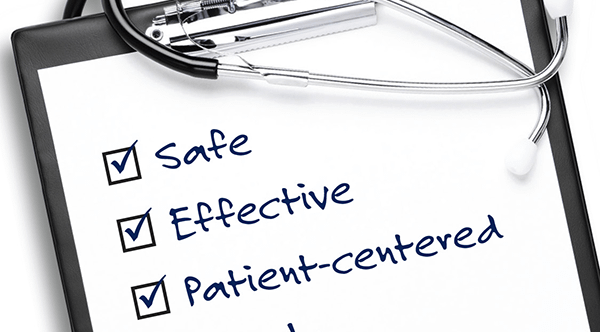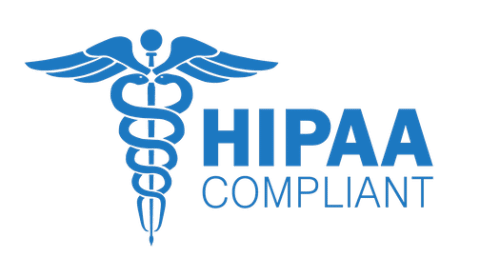
OVERVIEW
Do you anticipate encountering altitude sickness while on a planned trip? Altitude sickness can cause dizziness, headache, nausea, and shortness of breath, making it difficult to enjoy your trip. Plan ahead and get your prescription today.
At MyInstantMD, we can provide altitude sickness medications to have on hand before you leave for your trip!
Available in 50 states. No insurance needed.
What is a Altitude Sickness
Altitude sickness, also known as acute mountain sickness (AMS), is a condition that occurs when the body struggles to adapt to the reduced oxygen levels and lower air pressure at high elevations.
Altitude sickness can affect anyone, regardless of age, gender, or physical fitness level. It is caused by the rapid ascent to high altitudes, which does not allow the body sufficient time to acclimatize to the change in atmospheric pressure and oxygen concentration.
While most cases of altitude sickness are mild and can be treated with rest, hydration, and descent to a lower elevation, severe forms such as high altitude pulmonary edema (HAPE) and high altitude cerebral edema (HACE) require immediate medical attention.
Common Symptoms of a Altitude Sickness
Common symptoms of altitude sickness include headache, nausea, dizziness, fatigue, and shortness of breath. These symptoms typically appear within hours to days of ascending to a higher elevation, usually above 8,000 feet (2,400 meters).
The severity of symptoms can vary from mild to severe and may worsen with continued ascent or physical exertion. In some cases, altitude sickness can progress to more serious conditions such as high-altitude pulmonary edema (HAPE) or high-altitude cerebral edema (HACE), which require immediate medical attention and descent to a lower altitude.
If you’re planning a trip to a high-altitude destination, it’s essential to be aware of the signs and symptoms of altitude sickness. Gradual ascent, proper acclimatization, and the use of altitude sickness tablets can help prevent the onset of symptoms.
However, if you do experience symptoms of altitude sickness, it’s crucial to rest, hydrate, and descend to a lower elevation if symptoms persist or worsen. At MyInstantMD, our experienced providers can evaluate your symptoms and provide personalized treatment options to help you manage altitude sickness and enjoy your high-altitude adventures safely.
Common Causes of a Altitude Sickness
Altitude sickness happens when the body has a hard time adapting to the lower oxygen levels at higher elevations. As you go up in altitude, the air pressure goes down, which means there’s less oxygen available for you to breathe.
This lack of oxygen can cause symptoms like headaches, dizziness, nausea, and feeling short of breath. You’re more likely to get altitude sickness if you go up to elevations above 8,000 feet too quickly, especially if you don’t give your body time to adjust.
There are a few things that can make you more likely to get altitude sickness. If you’ve had it before, that’s one factor. Going up in elevation too fast, reaching a really high altitude, doing a lot of physical activity at high altitudes, and having certain medical problems like lung or heart disease can also increase your risk.
People who live at sea level or low elevations may be more likely to get altitude sickness when they travel to higher altitudes. It’s important to know about these risk factors and take steps to prevent altitude sickness, like going up gradually and staying hydrated, to lower your chances of getting symptoms.
Available Treatment Options for a Altitude Sickness
Altitude sickness can be treated with prescription medication through our online telemedicine platform, MyInstantMD. Mild cases of altitude sickness may be managed with rest, hydration, and descent to lower elevations.
Over-the-counter pain relievers can help alleviate headaches and reduce fever. For more severe cases or for prevention, prescription medications such as acetazolamide and dexamethasone may be prescribed.
MyInstantMD offers a convenient and accessible way to receive treatment for altitude sickness, without the need for an in-person visit. Patients can complete an online assessment, and a provider will review the information to create a personalized treatment plan.
Prescription Medication
Prescription medications such as acetazolamide and dexamethasone can be effective in treating altitude sickness. Acetazolamide works by increasing the amount of oxygen in the blood and reducing symptoms like headache, nausea, and dizziness.
Dexamethasone is a steroid that helps reduce inflammation and swelling in the brain, which can alleviate severe symptoms of acute mountain sickness (AMS). MyInstantMD’s licensed providers can assess your symptoms and determine the appropriate prescription medication for your specific case of altitude sickness.
It’s important to note that prescription medications for altitude sickness should only be used under the guidance of a healthcare professional. While these medications can be highly effective in treating symptoms, they may also have side effects and interactions with other medications.
MyInstantMD’s telehealth platform allows you to securely consult with a provider who can evaluate your medical history and current condition to determine the safest and most effective treatment plan for you.
Available in 50 states. No insurance needed.
Over the Counter Medications and Self-Care Tips

Over-the-counter medications can provide relief for mild altitude sickness symptoms. Acetazolamide, a medication that helps the body acclimatize to high elevations, is available by prescription and can be used for both prevention and treatment of altitude sickness.
Ibuprofen or acetaminophen can help alleviate headaches and reduce fever. It’s crucial to stay well-hydrated by drinking plenty of water and avoiding alcohol and caffeine, which can worsen dehydration.
Rest is essential for recovery from altitude sickness. If symptoms persist or worsen, descending to a lower elevation may be necessary. Supplemental oxygen can also help alleviate symptoms in severe cases.
While these self-care measures can be effective for mild cases, it’s important to seek medical attention if symptoms become severe or do not improve with rest and hydration.
Available in 50 states. No insurance needed.
Recommendations for Further Altitude Sickness Treatments When Necessary
For severe cases of altitude sickness, additional treatments may be necessary. If symptoms worsen or do not improve with rest and hydration, it is crucial to seek medical attention promptly.
In some cases, immediate descent to a lower elevation may be required to prevent serious health risks. If descent is not possible, supplemental oxygen therapy can be administered to increase the amount of oxygen in the body and alleviate symptoms.
It is important to note that while these treatments can be effective, they should only be used under the guidance of a healthcare professional who can assess the individual’s specific needs and medical history.
Benefits of Online Treatment
Online treatment offers a fast and convenient way to access medical care for altitude sickness from the comfort of your home. With MyInstantMD’s secure telehealth platform, you can get evaluated and receive a personalized treatment plan for acute mountain sickness without the need for an in-person visit.
Convenience and accessibility
Accessing medical care for altitude sickness has never been easier with online treatment options. Patients can now receive treatment from the comfort of their own homes, without the need to travel to a clinic or hospital.
This is especially beneficial for those who live in remote areas or have difficulty accessing traditional medical care. With online treatment, patients can receive care at any time, day or night, without having to worry about scheduling conflicts or long wait times.
Online treatment for altitude sickness is also highly convenient. Patients can complete an online assessment and receive a personalized treatment plan in less than an hour. This means that patients can get the care they need quickly, without having to wait for an appointment or spend time in a waiting room.
Avoiding exposure to other illnesses
Online treatment for altitude sickness reduces the risk of exposure to other illnesses, a significant advantage over in-person visits to crowded medical facilities. By accessing healthcare from the comfort of your home, you minimize contact with individuals who may be carrying infectious diseases, lowering the chances of contracting secondary illnesses that could complicate your recovery from altitude sickness.
Telehealth platforms provide a secure and convenient way to receive treatment for altitude sickness symptoms such as headache, dizziness, and nausea, without the need to physically visit a doctor’s office or hospital.
Available in 50 states. No insurance needed.
Fast and secure Telehealth platform
Our telehealth platform delivers altitude sickness treatment swiftly and securely. State-of-the-art technology ensures your personal information remains confidential while providing quick access to medical care.
With a user-friendly interface and robust security measures, you can trust that your health concerns will be addressed efficiently and safely.
Our platform is designed to help you manage acute mountain sickness (AMS) symptoms, such as headache, dizziness, and nausea, without the need for in-person visits. By completing a simple online assessment, healthcare providers can review your information and develop a personalized treatment plan tailored to your needs.

Get Started Today
Ready to get relief from altitude sickness without the hassle? MyInstantMD offers fast, convenient treatment options tailored to your needs. Our experienced providers are here to help you feel better, no matter where you are.
Contact us today and take the first step towards feeling like yourself again.
Available in 50 states. No insurance needed.

Acute medical treatment in
3 easy steps

1
Answer a few simple questions

2
Provider will then review your information

3
Send prescription to the pharmacy of your choice
Frequently Asked Questions
MYInstantMD offers a convenient and effective way to treat altitude sickness from the comfort of your home. By completing an online assessment, a licensed provider will review your symptoms and medical history to create a personalized treatment plan. This plan will be available in your patient portal within an hour, ensuring you receive timely care.
MYInstantMD can help treat mild symptoms of altitude sickness, such as headaches, nausea, dizziness, and shortness of breath. If you are experiencing severe symptoms, we recommend seeking immediate medical attention in person.
Yes, the effectiveness of the treatment for altitude sickness depends on several factors, including the altitude you are at, how quickly you ascended, and your overall health. Our providers will consider these factors when creating your treatment plan.
Our goal is to provide a treatment plan within an hour of submitting your assessment. You will receive an email notification once your provider has completed the review, and you can access the plan in your patient portal.
Yes, if your treatment plan includes a prescription, you can send it to your pharmacy of choice. We will provide a list of local pharmacies based on your current location to make the process as seamless as possible.
If your symptoms worsen or do not improve after following the treatment plan, you can send a message to the provider within 24 hours of completing your online consultation. Additionally, our support team is available to assist you with any questions or concerns. If you experience severe symptoms, seek immediate medical attention in person, especially if you are at a higher altitude.



